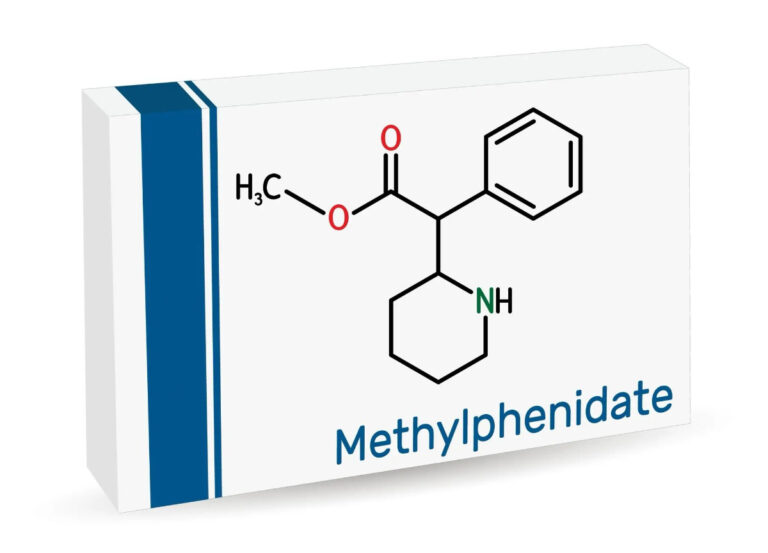Can You Take Modafinil every day? Examining the Safety and Efficacy
Modafinil is widely prescribed to treat sleep disorders such as narcolepsy, shift work sleep disorder, and obstructive sleep apnea. More recently, it has gained popularity for off-label use, especially as a cognitive enhancer to improve alertness, focus, and productivity. Understanding whether it is safe and effective to take Modafinil daily is critical for anyone considering long-term use.
Understanding Modafinil’s Mechanism and Approved Uses
Modafinil is a wakefulness-promoting agent that acts on multiple neurotransmitter systems in the brain, including dopamine, orexin, and histamine pathways. While its exact mechanism is not fully elucidated, it is thought to inhibit dopamine reuptake, thereby increasing extracellular dopamine and promoting alertness (Greenblatt & Adams, 2023).
Clinically, Modafinil is approved by the FDA for narcolepsy, shift work sleep disorder, and excessive daytime sleepiness associated with obstructive sleep apnea (FDA, 2015). For these indications, doses of 200 mg once daily are standard and have demonstrated efficacy in improving wakefulness without significant abuse potential (Schwartz et al., 2003; FDA, 2015).
Off-label, Modafinil is often used to treat fatigue related to conditions such as multiple sclerosis (MS). However, evidence for efficacy in such populations is mixed. Some studies indicate modest benefits on fatigue and wakefulness in MS patients (Rammohan et al., 2002), while others show limited or no significant improvement compared to placebo (Nourbakhsh et al., 2021).
Safety and Risks of Daily Modafinil Use
Short- and Medium-Term Safety
Clinical trials and observational studies suggest that Modafinil is generally well tolerated when taken at recommended doses. Common side effects include headache, nausea, dizziness, and insomnia (Schwartz et al., 2003; FDA, 2015). Serious adverse reactions are rare but can include psychiatric symptoms such as anxiety, mania, and psychosis, particularly at higher doses or in patients with pre-existing psychiatric disorders (Davies et al., 2013; FDA, 2015).
Long-Term Use and Off-Label Concerns
Long-term safety data remain limited, especially regarding daily use for cognitive enhancement. Observational data from real-world use in England revealed that while many patients tolerate Modafinil well, those on higher doses (400 mg/day) report more serious adverse events, including psychosis and cardiac issues (Davies et al., 2013).
Further, off-label prescribing is common, especially among MS patients, highlighting a gap between regulatory approval and clinical practice (Davies et al., 2013). This emphasizes the need for ongoing monitoring and individualized risk-benefit assessment.
Variability in User Experience
Individual response to Modafinil can vary greatly. Factors such as genetics, baseline health, concomitant medications, and lifestyle impact both effectiveness and risk of side effects (Greenblatt & Adams, 2023; Davies et al., 2013). Some users report enhanced focus, productivity, and wakefulness without side effects, while others experience insomnia, headaches, anxiety, or more severe psychiatric symptoms (Schwartz et al., 2003; Davies et al., 2013).
Medical Advice and Prescription Guidelines
Because Modafinil is a prescription medication with potential side effects and interactions, medical supervision is crucial. Physicians generally prescribe it for approved indications and tailor dosing based on patient response and comorbidities (FDA, 2015). Off-label use for cognitive enhancement or fatigue should only be considered after consultation with a healthcare provider to weigh risks and benefits.
Special caution is advised for individuals with cardiovascular disease, psychiatric history, or those taking medications metabolized by CYP450 enzymes, as Modafinil can interact with such drugs (FDA, 2015; Greenblatt & Adams, 2023).
Women of childbearing potential must use effective contraception due to Modafinil’s induction of CYP3A4 enzymes, which can reduce contraceptive efficacy. Reports exist of pregnancies occurring despite contraceptive use while on Modafinil, underscoring this risk (Davies et al., 2013; FDA, 2015).
Conclusion
Taking Modafinil every day is a complex decision requiring careful consideration of approved indications, safety profile, and individual factors. While evidence supports its safety and efficacy for approved uses at recommended doses, the risks associated with long-term, off-label, or higher-dose use remain less clear.
Consulting with a healthcare professional is essential before starting or continuing daily Modafinil use, to ensure appropriate monitoring and minimize potential harms. As research progresses, more definitive data on long-term effects and optimal use will improve guidance for both medical and off-label contexts.
References
- Davies, M., Wilton, L., & Shakir, S. (2013). Safety profile of modafinil across a range of prescribing indications, including off-label use, in a primary care setting in England: Results of a modified prescription-event monitoring study. Drug Safety, 36(4), 237–246. https://doi.org/10.1007/s40264-013-0025-y
- Food and Drug Administration. (2015). PROVIGIL® (modafinil) tablets, for oral use, C-IV [prescribing information]. U.S. Department of Health and Human Services. https://www.accessdata.fda.gov/drugsatfda_docs/label/2015/020717s037s038lbl.pdf
- Greenblatt, K., & Adams, N. (2023). Modafinil. In StatPearls [Internet]. StatPearls Publishing. https://www.ncbi.nlm.nih.gov/books/NBK531476/
- Nourbakhsh, B., Revirajan, N., Morris, B., Cordano, C., Creasman, J., Manguinao, M., Krysko, K., Rutatangwa, A., Auvray, C., Aljarallah, S., Jin, C., Mowry, E., McCulloch, C., & Waubant, E. (2021). Safety and efficacy of amantadine, modafinil, and methylphenidate for fatigue in multiple sclerosis: A randomised, placebo-controlled, crossover, double-blind trial. The Lancet Neurology, 20(1), 38–48. https://doi.org/10.1016/S1474-4422(20)30354-9
- Rammohan, K. W., Rosenberg, J. H., Lynn, D. J., Blumenfeld, A. M., Pollak, C. P., & Nagaraja, H. N. (2002). Efficacy and safety of modafinil (Provigil) for the treatment of fatigue in multiple sclerosis: A two centre phase 2 study. Journal of Neurology, Neurosurgery, and Psychiatry, 72(2), 179–183. https://doi.org/10.1136/jnnp.72.2.179
- Schwartz, J. R., Feldman, N. T., Fry, J. M., & Harsh, J. (2003). Efficacy and safety of modafinil for improving daytime wakefulness in patients treated previously with psychostimulants. Sleep Medicine, 4(1), 43–49. https://doi.org/10.1016/s1389-9457(02)00240-x








